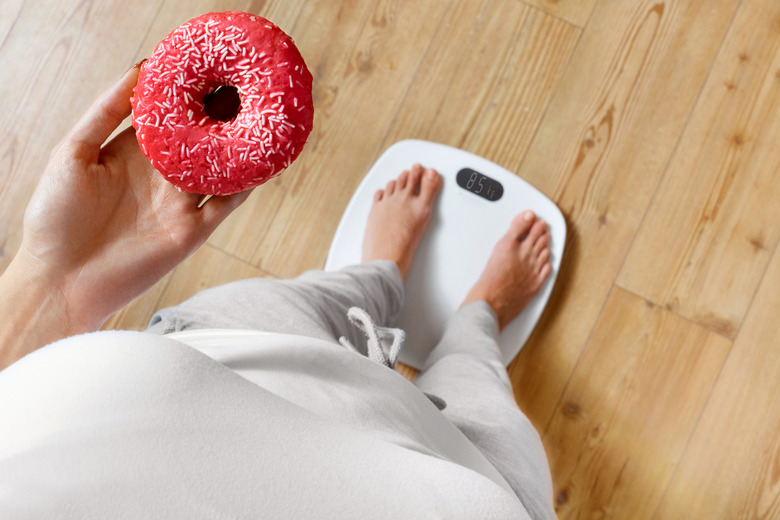US Obesity Rate Reaches An Alarming High
Something's not working. Despite an increase in efforts to eradicate, or at least minimize, obesity, the rate of adults considered obese in America has hit a record high of 40 percent.
Research released by the Centers for Disease Control and Prevention showed a 30 percent increase in adult obesity in the past 15 years, without any signs of the increase slowing down anytime soon. The CDC calls this sharp incline in obesity rates "very striking" and suggests that efforts to mitigate obesity "haven't done enough."
That last suggestion is a bit alarming to read — we've actually done a whole lot, at least in terms of discussion, to combat obesity. In fact, health conversation has been centered around obesity for the duration of the 15-year sharp increase, and the frequency of obesity chatter has actually been rising almost in tandem with the actual obesity rate.
Is talking about obesity making it worse?
It could be — after all, there have been numerous studies citing weight stigma (the societal prejudice against people carrying excess weight) as a risk factor for obesity. The more we talk negatively about weight, the higher our weights get.
This hypothesis is further supported by the racial disparities noted in the prevalence of obesity, with groups that more commonly face prejudice (Hispanics and non-Hispanic blacks) having higher rates of obesity across the board. Prejudice may be worsening the weight disparity that already exists.
So is all this excess weight really so bad, or should we be focusing on something else entirely? Perhaps weight is simply a symptom of another problem (or multiple problems) and not really a problem in itself. By attacking the weight, we seem to be ballooning the existing issue more than we're effectively fighting it. While the CDC suggests we do more, it might be wiser to take a step back and consider changing our society's approach to obesity.
America's poverty issues also contribute to the nationwide health crisis, since a reliance on fast food is often a budget necessity rather than an ignorant choice. The average American is well aware that fast food isn't good for regular consumption — but when you're eating what might be your only meal for the next few days, you're not going to go for the cauliflower crust with a kale pesto. You want a glutinous, caloric, cheesy slice of pizza.
